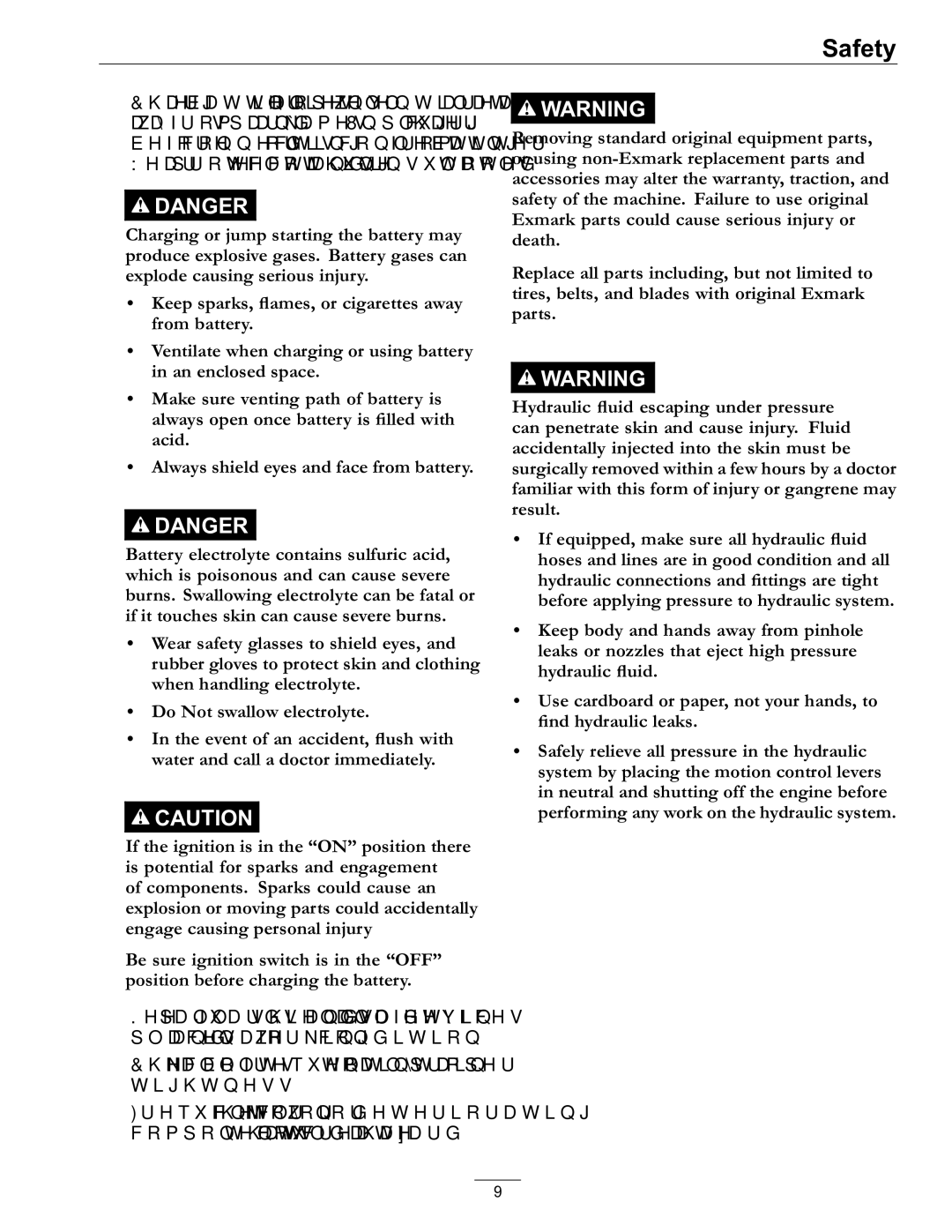977, 820 specifications
The Exmark 820,977 is a powerful and versatile commercial-grade mower that stands out in the landscaping and turf management industry. Renowned for its durability and efficiency, this model is designed to meet the demands of professionals and serious enthusiasts alike.One of the main features of the Exmark 820,977 is its efficient engine. Powered by a robust V-Twin engine, this mower delivers impressive horsepower, enabling it to cut through thick grass and tough terrain with ease. The engine is designed for optimal fuel efficiency, reducing operational costs while maximizing performance.
The Exmark 820,977 utilizes a patented UltraCut deck technology that ensures a clean and precise cut. This innovative mowing deck design contributes to an exceptional quality of cut at various mowing heights. The fully welded construction enhances durability, allowing for prolonged use in demanding conditions.
Another significant characteristic of the Exmark 820,977 is its ergonomic design. The control system is user-friendly, providing operators with intuitive controls that minimize fatigue during extended use. The adjustable operator seat contributes to comfort, allowing for optimal positioning regardless of the user's stature.
For enhanced maneuverability, the Exmark 820,977 features a low center of gravity and responsive handling, making it easier to navigate around obstacles and tight spaces. The mower's compact design also facilitates storage and transport without taking up too much space.
Technology plays a crucial role in the Exmark 820,977's performance. The model incorporates a range of advanced features, such as an advanced ignition system, which ensures reliable starts and smooth operation. Additionally, the mower includes a maintenance display that alerts users when service is needed, promoting proactive care and reducing downtime.
The Exmark 820,977 is also designed with adaptability in mind. Optional attachments and accessories allow users to customize their mower for a variety of tasks, from mulching and bagging to aerating and dethatching. This versatility makes it an ideal choice for commercial landscapers who require equipment that can handle different jobs effectively.
In conclusion, the Exmark 820,977 epitomizes a blend of powerful performance, advanced technology, and user-friendly features. Its durability and adaptability make it a top choice for professionals seeking a reliable mower capable of delivering superior results in challenging environments.

